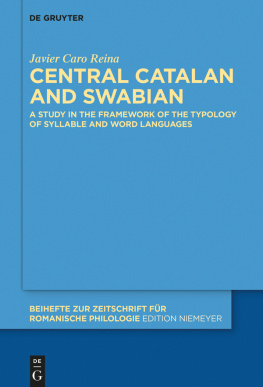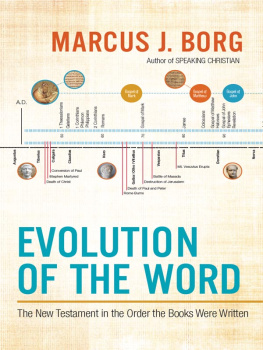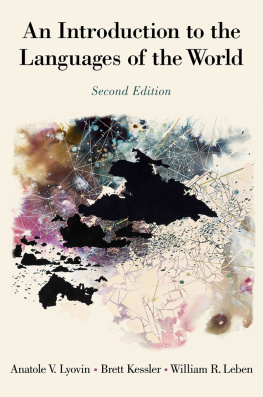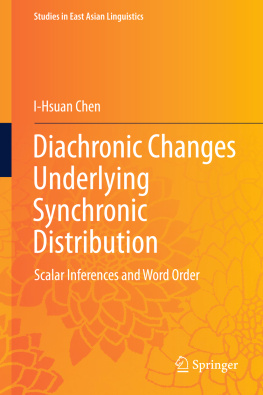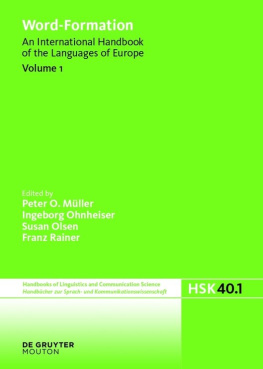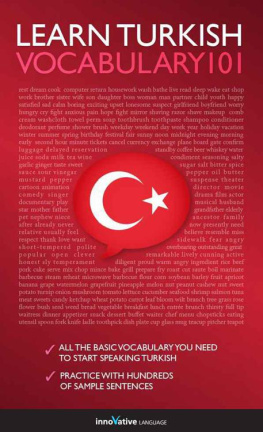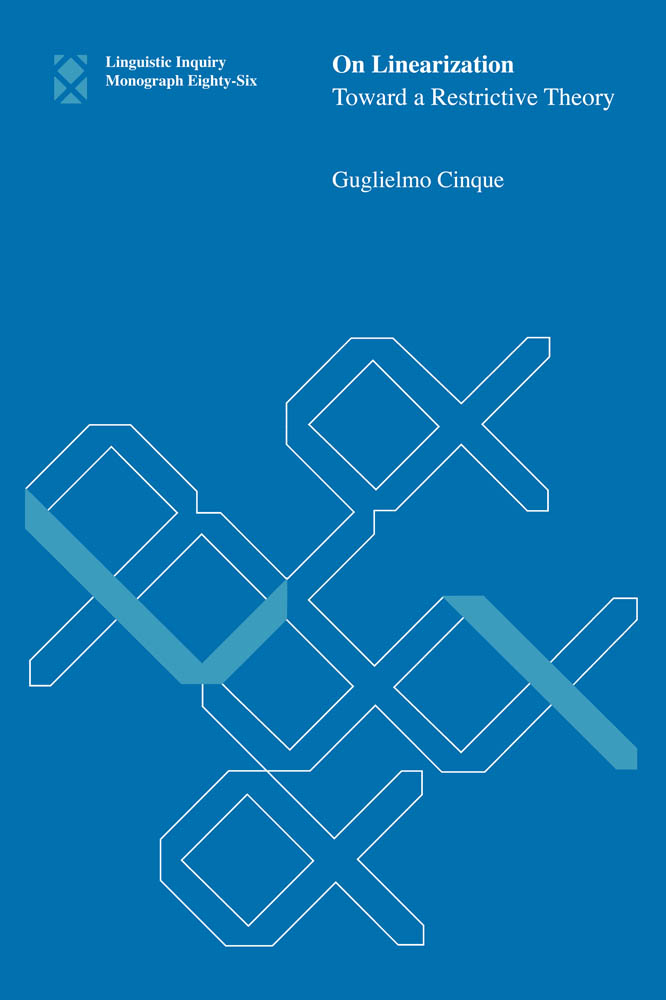Guglielmo Cinque - On Linearization: Toward a Restrictive Theory
Here you can read online Guglielmo Cinque - On Linearization: Toward a Restrictive Theory full text of the book (entire story) in english for free. Download pdf and epub, get meaning, cover and reviews about this ebook. City: Cambridge, year: 2023, publisher: The MIT Press, genre: Science. Description of the work, (preface) as well as reviews are available. Best literature library LitArk.com created for fans of good reading and offers a wide selection of genres:
Romance novel
Science fiction
Adventure
Detective
Science
History
Home and family
Prose
Art
Politics
Computer
Non-fiction
Religion
Business
Children
Humor
Choose a favorite category and find really read worthwhile books. Enjoy immersion in the world of imagination, feel the emotions of the characters or learn something new for yourself, make an fascinating discovery.

- Book:On Linearization: Toward a Restrictive Theory
- Author:
- Publisher:The MIT Press
- Genre:
- Year:2023
- City:Cambridge
- Rating:5 / 5
- Favourites:Add to favourites
- Your mark:
On Linearization: Toward a Restrictive Theory: summary, description and annotation
We offer to read an annotation, description, summary or preface (depends on what the author of the book "On Linearization: Toward a Restrictive Theory" wrote himself). If you haven't found the necessary information about the book — write in the comments, we will try to find it.
Linearization, or the typical sequence of words in a sentence, varies tremendously from language to language. Why, for example, does the English phrase a white table need a different word order from the French phrase une table blanche, even though both refer to the same object? Guglielmo Cinque challenges the current understanding of word order variation, which assumes that word order can be dealt with simply by putting a head either before or after its complements and modifiers. The subtle variations in word order, he says, can provide a window into understanding the deeper structure of language and are in need of a sophisticated explanation.
The bewildering variation in word order among the languages of the world, says Cinque, should not dissuade us from researching what, if anything, determines which orders are possible (and attested/attestable) and which orders are impossible (and not attested/nonattestable), both when they maximally conform to the head-final or head-initial types and when they depart from them to varying degrees. His aim is to develop a restrictive theory of word order variationnot just a way to derive the ideal head-initial and head-final word orders but also the mixed cases.
In the absence of an explicit theory of linearization, Cinque provides a general approach to derive linear order from a hierarchical arrangement of constituents, specifically, by assuming a restrictive movement analysis that creates structures that can then be linearized by Richard S. Kaynes Linear Correspondence Axiom.
Guglielmo Cinque: author's other books
Who wrote On Linearization: Toward a Restrictive Theory? Find out the surname, the name of the author of the book and a list of all author's works by series.

